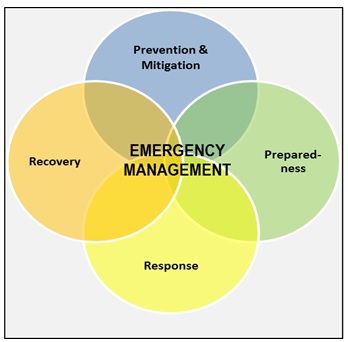The federal, provincial and territorial governments have developed a resource, the Emergency Management Framework for Agriculture, to improve Canada’s ability to address risks and emergencies, from prevention to recovery, and to strengthen the resilience, sustainability and competitiveness of the agriculture sector.
Within that Framework, a risk analysis was conducted, identifying four key areas that were considered likely to result in significant emergencies, due to a high probability of occurrence and potentially high impacts on the agriculture sector.
Of those, “meteorological events and extreme weather (extreme heat, cold, precipitation, drought, hail and wind)” were projected to become more frequent, variable and intense, with a significant effect on agricultural production that is heavily dependent on predictable and stable weather and climate patterns.
Emergency management within the agriculture sector is considered to be a shared responsibility among all levels of government, including local government, as well as industry, producers and other stakeholders.
For more information about the Framework visit Agriculture and Agri-Food Canada’s website here.









